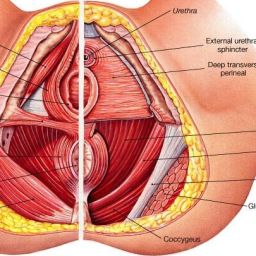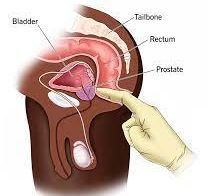
Reduce Diabetes Risk: Lifestyle Changes for a Healthier You
In today’s health-conscious world, the quest to reduce diabetes risk has become paramount. Adopting specific lifestyle changes not only promotes overall well-being but also plays a pivotal role in minimizing the onset of this chronic condition. Dive into this guide as we unveil actionable strategies tailored to sculpt a healthier future, centered around evidence-based practices and expert insights.

There are several lifestyle modifications that can help reduce the risk of developing diabetes. These include:
1. Healthy diet: Eating a balanced diet that is low in sugar, refined carbohydrates, and saturated fats can help reduce the risk of diabetes. It is recommended to focus on consuming whole grains, fruits, vegetables, lean proteins, and healthy fats.
2. Regular exercise: Physical activity helps improve insulin sensitivity, promotes weight loss, and maintains a healthy body weight. Engaging in moderate-intensity exercises like brisk walking, swimming, or cycling for at least 150 minutes per week is recommended.
3. Weight management: Maintaining a healthy body weight can significantly reduce the risk of diabetes. Small, gradual weight loss goals should be set if overweight or obese.
4. Quit smoking: Smoking increases the risk of diabetes and other complications, so quitting smoking can greatly reduce the risk.
5. Limit alcohol consumption: Excessive alcohol intake is linked to an increased risk of diabetes. It is advised to consume alcohol in moderation or avoid it altogether.
6. Stress management: Chronic stress can contribute to the development of diabetes. Engaging in stress management techniques like meditation, yoga, or deep breathing exercises can be helpful.
7. Sufficient sleep: Lack of sleep or poor sleep quality can increase the risk of diabetes. It is important to aim for 7-9 hours of quality sleep per night.
8. Regular check-ups: Regular medical check-ups and screenings can help detect early signs of prediabetes or diabetes. Maintaining regular contact with healthcare professionals can ensure appropriate preventive measures are taken.
It is important to note that while lifestyle modifications can significantly reduce the risk, they do not guarantee complete prevention. Consulting with a healthcare professional is recommended to tailor a specific plan based on individual needs and risk factors.
Disclaimer: This post is intended solely for informational purposes and does not constitute medical advice. Always consult with a qualified healthcare professional for personalized guidance regarding your specific health situation.

















I truly enjoy examining on this web site, it holds great content. “Do what you fear, and the death of fear is certain.” by Anthony Robbins.
Thank you for the sensible critique. Me and my neighbor were just preparing to do some research about this. We got a grab a book from our local library but I think I learned more clear from this post. I’m very glad to see such magnificent info being shared freely out there.
I like this site very much, Its a real nice office to read and obtain info . “Reason is not measured by size or height, but by principle.” by Epictetus.
Write more, thats all I have to say. Literally, it seems as though you relied on the video to make your point. You clearly know what youre talking about, why waste your intelligence on just posting videos to your weblog when you could be giving us something enlightening to read?
Just wanna admit that this is invaluable, Thanks for taking your time to write this.
Thank you for the auspicious writeup. It in reality was once a leisure account it. Look complex to far delivered agreeable from you! By the way, how could we keep up a correspondence?
I have been surfing on-line more than 3 hours nowadays, yet I by no means discovered any fascinating article like yours. It is pretty value enough for me. In my view, if all website owners and bloggers made just right content as you did, the internet shall be much more useful than ever before.
Outstanding post, you have pointed out some superb details , I also think this s a very fantastic website.
You are my inhalation, I possess few web logs and very sporadically run out from to brand.
Excellent website. Plenty of useful information here. I?¦m sending it to several buddies ans additionally sharing in delicious. And of course, thank you on your sweat!
Nice post. I learn something more challenging on different blogs everyday. It will always be stimulating to read content from other writers and practice a little something from their store. I’d prefer to use some with the content on my blog whether you don’t mind. Natually I’ll give you a link on your web blog. Thanks for sharing.
F*ckin¦ tremendous things here. I am very satisfied to peer your post. Thank you a lot and i am looking forward to contact you. Will you please drop me a mail?
Hi there, You have done a fantastic job. I will definitely digg it and personally recommend to my friends. I am sure they will be benefited from this site.
Hi , I do believe this is an excellent blog. I stumbled upon it on Yahoo , i will come back once again. Money and freedom is the best way to change, may you be rich and help other people.
Hi there! This is my first visit to your blog! We are a group of volunteers and starting a new project in a community in the same niche. Your blog provided us beneficial information to work on. You have done a outstanding job!
I?¦ve recently started a site, the info you offer on this site has helped me greatly. Thanks for all of your time & work.
Yeah bookmaking this wasn’t a bad decision outstanding post! .
I likewise think thence, perfectly written post! .
I love what you guys tend to be up too. This kind of clever work and coverage! Keep up the amazing works guys I’ve incorporated you guys to blogroll.